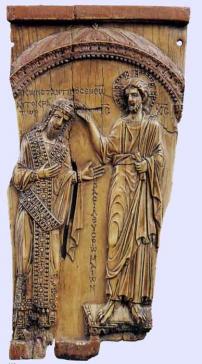In the framework of the Working Group "The Learned Practices of Canonical Texts," the purpose of András Németh's research was to reconsider the improved textual practices of the mid-tenth-century Byzantine imperial court and to analyze how these activities were linked with the imperial renewal of historiography. With a huge investment of financial and human resources, Emperor Constantine VII (r. 945–959) ordered reconstructions of complete works of dozens of ancient, Hellenistic, late antique and Byzantine historians, following a peculiar yet well defined method. Establishing a new canon of historiography required a vehicle of accumulation, reconstruction, and dissemination. For Constantine VII, this vehicle was the re-establishment of the palace library, the palace school and supervision of the production of manuscripts, which proved a major step in transmitting the classical heritage for us. The result is known as the Constantinian Excerpts that were used in his imperial treatises and later in the Suda lexicon.
So far, these excerpts have been exclusively studied with the aim to recover unknown events and to revitalize otherwise lost historical works. Instead of this approach, András Németh attempted to survey the original purpose of this imperial project, its chronology, and its unique approach to systematizing accumulated knowledge. He studied the influence of sciences and political ideology on canon formation, on the practices of articulating historical data, on the innovative methods invented for a more efficient information retrieval within the limits of slowly producible parchment books from which it was difficult to retrieve minute data in large quantities. For this analysis, he considered alternative pre-modern textual practices of other massive systematizing projects.

